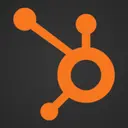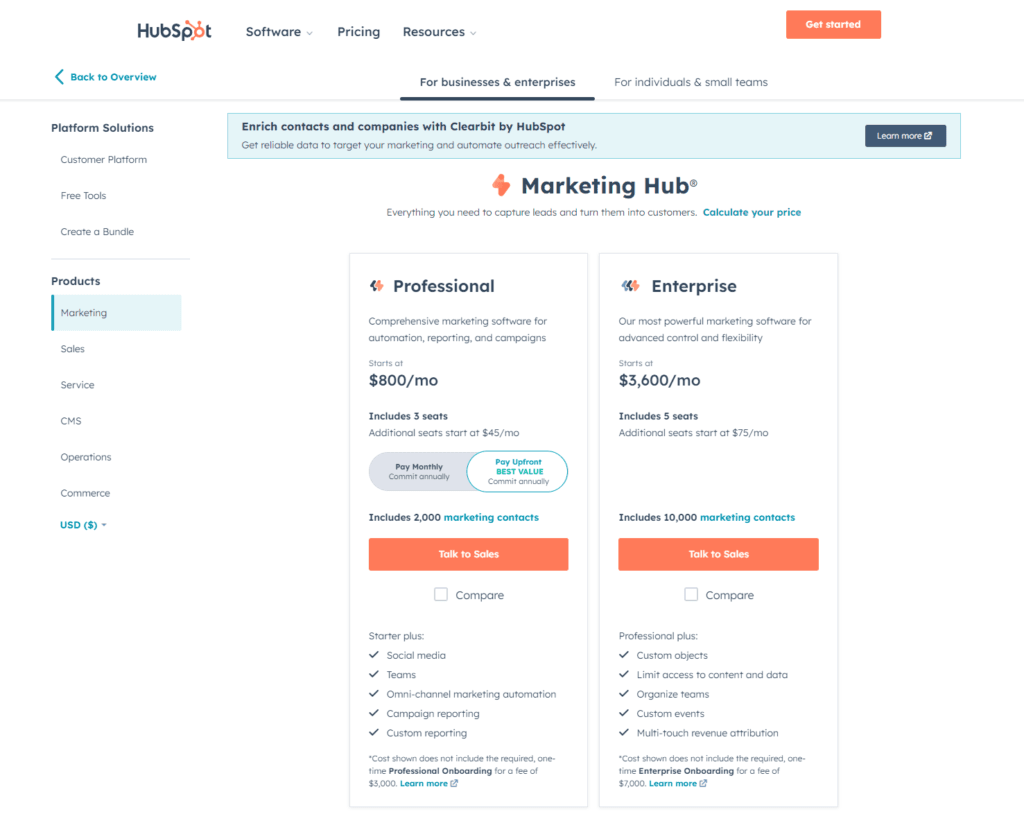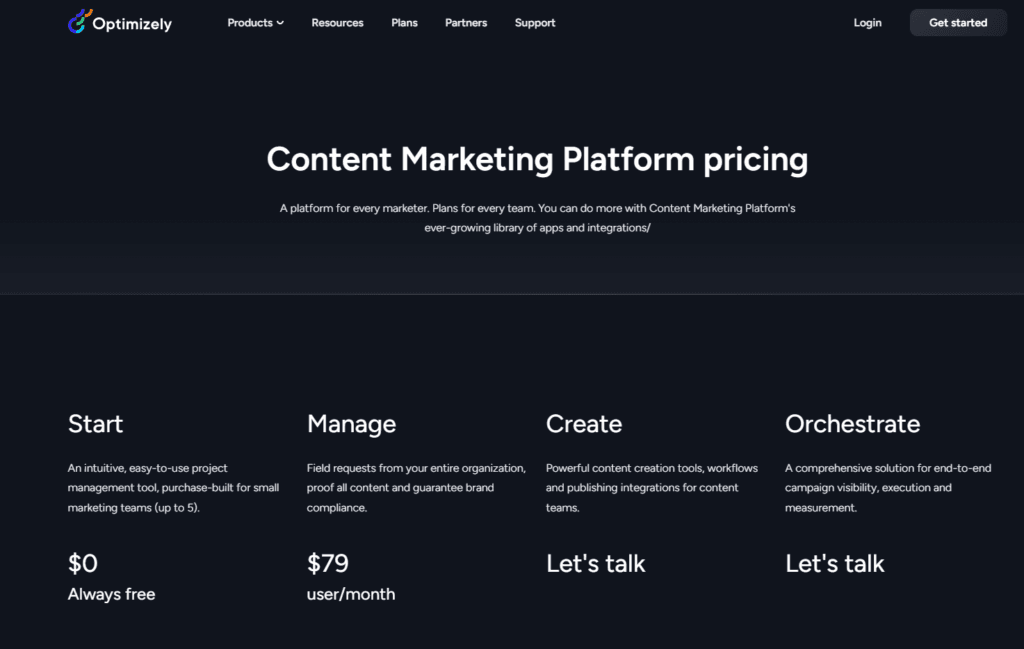In the dynamic world of digital marketing, choosing the right CRM tool isn’t just a decision; it’s a game changer. With the myriad of options available, it’s easy to feel overwhelmed. Two giants that consistently steal the spotlight are HubSpot Marketing Analytics and Optimizely. Each brings unique strengths to the table, tailored to different business needs and goals. Whether you’re a small startup looking to grow or a large enterprise aiming to refine your marketing strategies, the choice between these two can significantly influence your trajectory. But how do you decide which one is the MVP for your team? Let’s break it down, starting with a deep dive into one crucial area of comparison: Ease of Use and User Interface.
| HubSpot Marketing Analytics | Optimizely |
|---|---|
 |  |
| G2 Score -4.4 out of 5 | G2 Score -4.3 out of 5 |
| TrustRadius Score -8.5 out of 10 | TrustRadius Score -8.6 out of 10 |
Ease of Use and User Interface: The First Impression That Lasts
When it comes to CRM tools, first impressions matter. The ease of use and the intuitiveness of the user interface (UI) are often the first real interaction you’ll have with the software. It sets the tone for your long-term relationship with the tool. Here, both HubSpot Marketing Analytics and Optimizely shine, but in slightly different ways.
HubSpot Marketing Analytics: Simplifying Complexity
HubSpot is renowned for its user-friendly interface, designed with the non-tech-savvy user in mind. The dashboard is clean, intuitive, and provides a quick overview of all essential metrics at a glance. HubSpot effectively demystifies the complexity of marketing analytics, making it accessible to users of all skill levels. Whether you’re looking to track website performance, monitor social media engagement, or analyze email marketing campaigns, HubSpot presents the data in a straightforward, digestible format.
One of HubSpot’s standout features is its comprehensive onboarding process. New users are guided through the platform with interactive tutorials, ensuring that even the most inexperienced marketer can get up to speed quickly. This emphasis on education and ease of use makes HubSpot not just a tool but a learning resource, empowering users to grow their skills as they navigate the platform.
Optimizely: Empowering Precision and Experimentation
Optimizely, on the other hand, takes a slightly different approach. It’s a powerhouse for those looking to dive deep into A/B testing and experiment-driven marketing strategies. The platform is designed with experimentation at its core, offering robust tools for creating, managing, and analyzing tests on everything from website elements to full-scale marketing campaigns.
While Optimizely is incredibly powerful, its interface is slightly more complex than HubSpot’s. This complexity is by design, accommodating the advanced features and customization options that experimentation gurus crave. However, it’s worth noting that Optimizely also provides extensive documentation and support, helping users navigate the platform’s intricacies. For teams dedicated to a data-driven, test-and-learn approach, the learning curve is a worthwhile investment.
Pricing and Value: Navigating the Costs for Long-Term Success
When it comes to choosing the right CRM tool, understanding the pricing structure and the value it brings to your organization is crucial. Both HubSpot Marketing Analytics and Optimizely offer a range of options designed to fit various business needs and budgets, but they approach their pricing and value propositions differently.
HubSpot Marketing Analytics: A Journey from Free to Premium

HubSpot stands out for its user-friendly approach, not just in terms of its interface but also its pricing model. The journey with HubSpot begins with a robust set of free tools, making it an attractive entry point for small businesses and startups. This free tier includes basic functionalities across CRM, marketing, sales, and service, providing a solid foundation for businesses to get started without upfront investment.
As businesses grow and their needs become more complex, HubSpot offers a clear path to more advanced features through its paid plans. These plans are designed to scale with your business, adding deeper analytics, enhanced marketing automation capabilities, and greater customization as you move up the tiers. The flexibility of HubSpot’s pricing model means that you can start small and expand your toolset as your business evolves, ensuring that you’re only paying for the features you need at each stage of your growth.
The true value of HubSpot, however, transcends its flexible pricing. It’s in the ecosystem HubSpot has built around its platform — from extensive integration options and educational resources to a supportive community — that businesses find additional value. This comprehensive support network not only helps you make the most of the platform but also contributes to your overall marketing success.
Optimizely: Customization and Precision at a Price

Optimizely, with its focus on advanced experimentation and optimization, caters to a different market segment. Unlike HubSpot, Optimizely opts for custom pricing, which is tailored to the specific needs and complexities of each business. This approach reflects Optimizely’s focus on delivering precise, customized solutions for A/B testing, multivariate testing, audience targeting, and personalization.
This level of customization and control is particularly appealing to medium and large businesses or those with sophisticated marketing needs. The investment in Optimizely is not just in its features but in the potential it unlocks for businesses to meticulously refine their digital experiences based on solid, test-driven insights.
The value proposition of Optimizely lies in its specialized capabilities. For businesses that place a high priority on detailed experimentation and have the budget to support it, Optimizely offers unparalleled depth and control. This makes it a powerful tool for organizations dedicated to leveraging data-driven insights to optimize their marketing strategies continuously.
Integration Capabilities: The Art of Seamless Connectivity
In today’s digital marketing ecosystem, the ability of your CRM tool to seamlessly integrate with other software is not just a nice-to-have; it’s a necessity. From social media platforms and content management systems to customer service software and analytics tools, a CRM that connects effortlessly with a wide range of applications can significantly enhance your marketing efforts. So, how do HubSpot and Optimizely stack up in this arena?
HubSpot Marketing Analytics: The Connective Hub
HubSpot truly shines when it comes to integration capabilities. With a vast ecosystem of over 500 integrations, HubSpot acts as a connective hub that brings together various aspects of your marketing, sales, and service efforts. This expansive network includes popular tools like Salesforce, WordPress, Shopify, and Zapier, among others. The idea is to create a seamless workflow where data moves fluidly between systems, providing a holistic view of your marketing performance and customer interactions.
The beauty of HubSpot’s integration ecosystem lies in its simplicity. Most integrations are plug-and-play, requiring minimal technical skills to set up. This ease of integration extends the platform’s usability, making it an even more attractive option for businesses that rely on a diverse set of tools but want to keep their operations streamlined and efficient.
Optimizely: Focused Flexibility for Experimenters
Optimizely, with its focus on experimentation and optimization, offers a different kind of integration capability. While its ecosystem is not as extensive as HubSpot’s, Optimizely provides deep integration options with analytics platforms, content management systems, and e-commerce platforms. These integrations are designed to support advanced experimentation and personalization strategies, enabling businesses to run sophisticated A/B tests and multivariate tests across their digital properties.
Optimizely’s integrations are particularly robust when it comes to data analysis and reporting tools. By connecting with platforms like Google Analytics, Adobe Analytics, and more, Optimizely allows businesses to dive deep into the results of their experiments, drawing insights that inform future strategies. This level of integration is essential for businesses that prioritize data-driven decision-making and continuous optimization.

Related: Check out our free SEO suite

Customer Support: Your Safety Net for Smooth Operations
Both HubSpot and Optimizely understand the importance of robust customer support. However, the way they offer support and the resources available can vary, reflecting their differing approaches to customer service and user experience.
HubSpot: Comprehensive Support at Every Step
HubSpot is renowned not only for its user-friendly platform but also for its extensive support system. This includes a wide range of options to help users at every stage of their journey, from onboarding to becoming power users. The company offers 24/7 support through various channels, including live chat, email, and phone, ensuring that help is always at hand when you need it.
Beyond direct support, HubSpot provides an impressive array of self-help resources. Their knowledge base is extensive, covering every feature with easy-to-follow guides and tutorials. Moreover, HubSpot Academy stands out as a unique offering, providing free online training courses on a wide array of topics related to marketing, sales, and customer service. These courses are designed to not only help users maximize their use of the HubSpot platform but also to enhance their overall skills in digital marketing and sales.
The community forum is another pillar of HubSpot’s support system, offering a platform for users to ask questions, share insights, and learn from each other’s experiences. This peer-to-peer support complements the official channels, creating a comprehensive support ecosystem that benefits users at all levels.
Optimizely: Focused Support for Specialized Needs
Optimizely, with its focus on experimentation and optimization, offers a more tailored approach to customer support. The company provides dedicated support for its users, including access to a team of experts for complex queries related to testing and personalization strategies. This ensures that businesses can get the most out of their experiments and optimize their digital experiences effectively.
While Optimizely’s direct support is robust, it’s the platform’s specialized resources that truly stand out. Optimizely’s documentation is thorough, offering deep dives into topics related to A/B testing, multivariate testing, and analytics. For users looking to push the boundaries of what’s possible with digital experimentation, these resources are invaluable.
Furthermore, Optimizely also offers a community forum where users can connect with other marketers and developers. This forum is a resource for sharing best practices, troubleshooting technical issues, and discussing advanced experimentation techniques. While perhaps not as broad as HubSpot’s community, it’s highly focused on the specific needs of Optimizely users.
Conclusion
The choice between HubSpot Marketing Analytics and Optimizely ultimately comes down to your business strategy, resource availability, and specific goals. If your priority is to have a comprehensive, user-friendly platform that supports a broad range of marketing activities and offers scalable growth, HubSpot is likely your best bet. If, however, your focus is on leveraging advanced testing and personalization to optimize every aspect of the customer journey, Optimizely’s specialized capabilities will serve you well.
READ NEXT:
- Pipedrive vs Salesmate: The Best CRM Tool for You
- Woopra vs HubSpot Marketing Analytics: The Best Analytics Tool for You
- Bitrix24 vs Vtiger: The Best CRM Tool for You
- SugarCRM vs Vtiger: The Best CRM Tool for You
- Pipedrive vs Keap (formerly Infusionsoft): The Best CRM Tool for You
- 29+ Digital Analytics Software to Skyrocket Your Digital ROI
- 11 Marketing Analytics Tools to Elevate Your Data-Driven Strategies




















